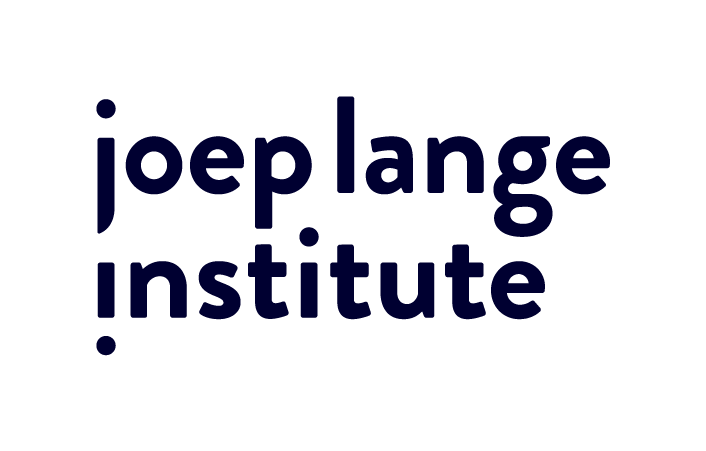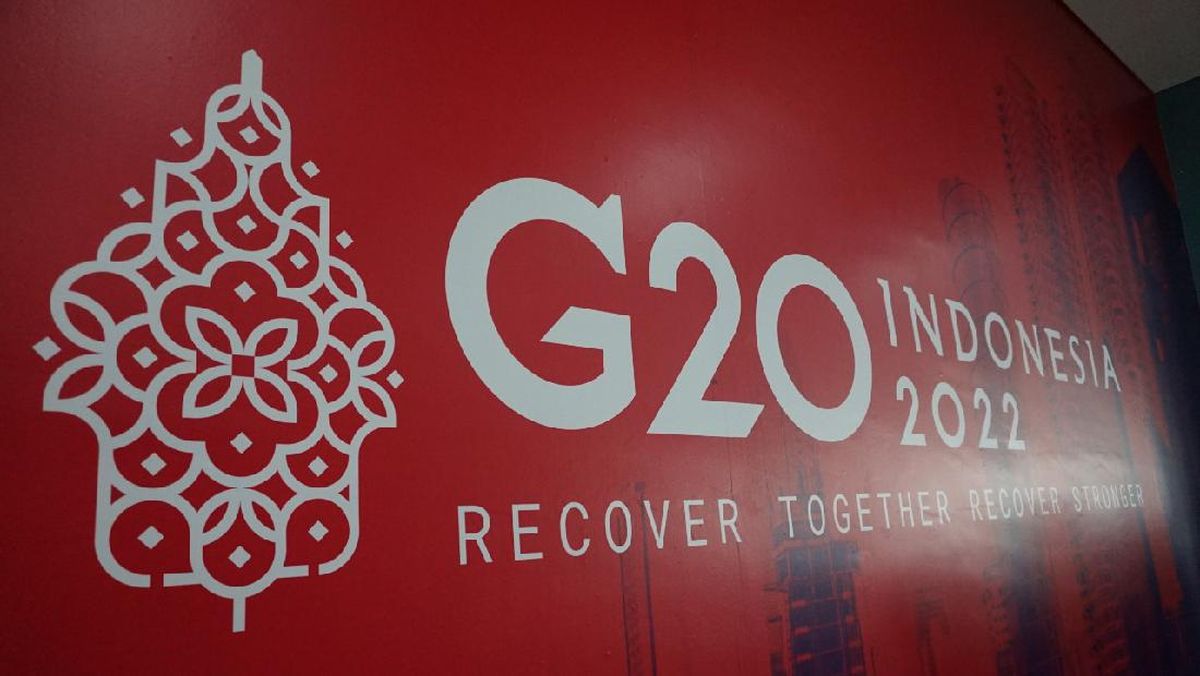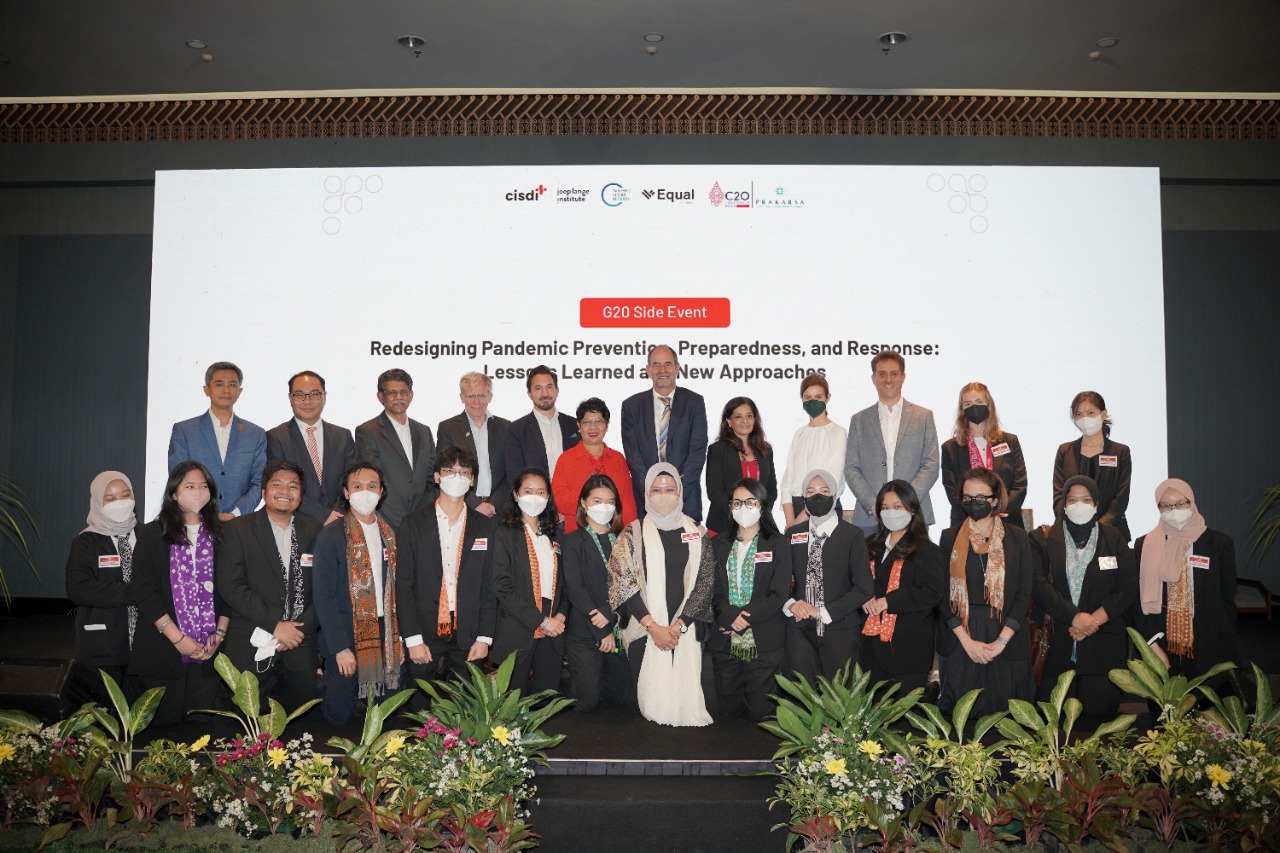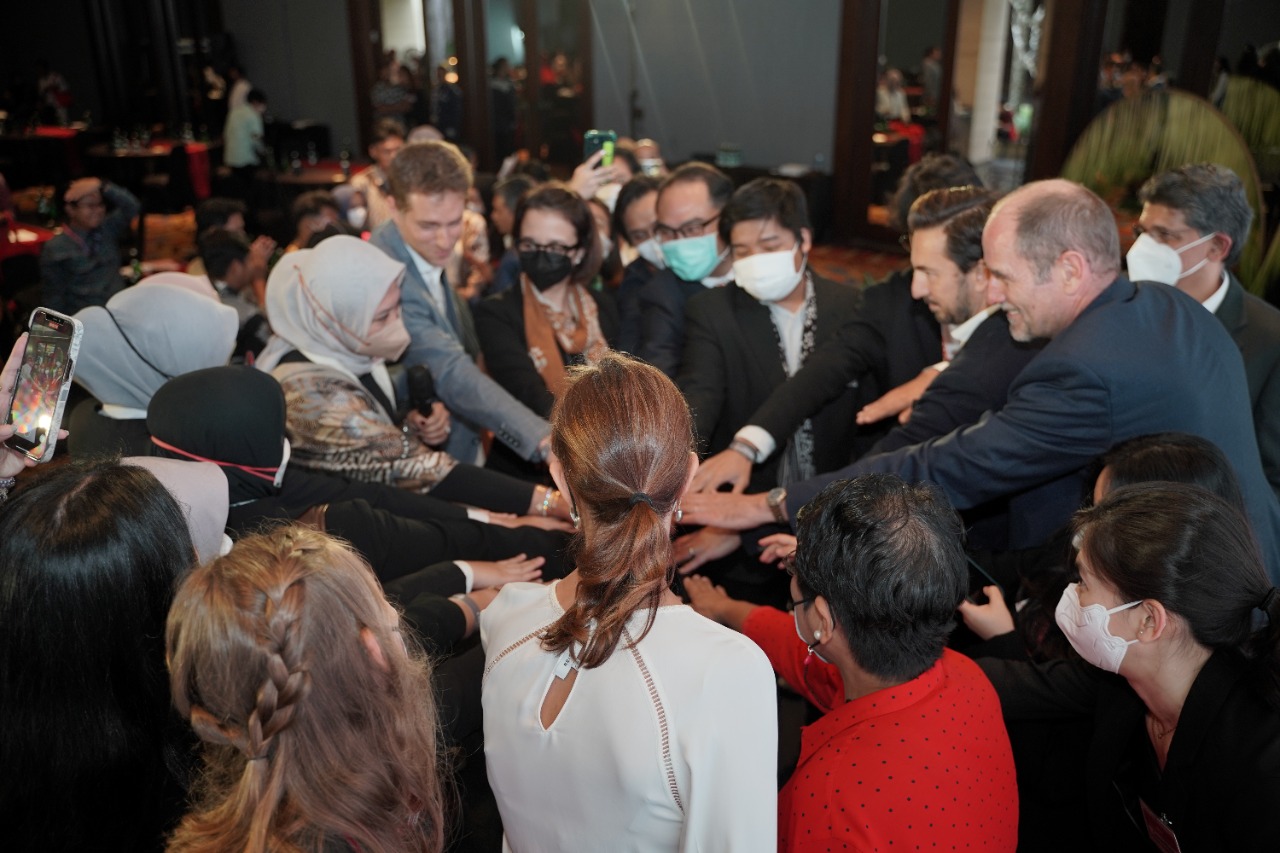“I fully support the launch of a new Pandemic Fund to help making the world better prepared for future pandemics. JLI has been a proud partner in organizing the side event during the G20 Summit on “Redesigning Pandemic Prevention, Preparedness, and Response: Lessons Learned and New Approaches”. The principles of GPI can contribute to making the new fund more effective and inclusively financed.”, Christoph Benn, Joep Lange Institute, Director of Health Diplomacy
On November 14 the Joep Lange Institute together with its main partners – the Center for Indonesia’s Strategic Development Initiatives (CISDI), Equal international and the Pandemic Action Network (PAN) – organized an official side event during the G20 Summit on “Redesigning Pandemic Prevention, Preparedness, and Response: Lessons Learned and New Approaches”. The event discussed with the leadership of the Pandemic Fund and delegates from different countries how the principles and governance of the new fund could be further strengthened providing incentives for many more countries to join the fund and adopting an inclusive 21st Century governance structure. The principles of Global Public Investment (GPI) – all countries contribute, all countries benefit, all countries decide – that JLI has been advocating for, have been central to the discussions with the Pandemic Fund. Recommendations from this event and previous consultations have been submitted to the two co-chairs and other board members. JLI will stay closely connected with the global efforts to address future pandemics and advocate for innovative approaches to fund the global response.
The G20 has taken a leadership role in the global response to the Covid-19 pandemic and in preparing the world for future pandemics that are definitely going to come.
The total costs to help in particular low- and middle-income countries to prevent and better respond to future pandemics are estimated at USD 10.5 billion/year. As a first step to address this global need a new Pandemic Fund hosted by the World Bank was launched at the G20 Summit in Bali on November 13.
Over the last few months leading up to the formal launch in Bali, the Center for Global Health Diplomacy of the Joep Lange Institute has been interacting closely with many founding board delegations, the World Bank and WHO to make this new fund as effective and relevant for country needs as possible. The focus of our advocacy was on inclusive governance moving away from the traditional donor-recipient divide, ensuring civil society participation on the newly established board and arguing for the Global Public Investment principles as the best option to make sure that countries of all income levels and geographies take on a strong responsibility for this fund and contribute to sustainable funding.
USD 1.4 billion have been pledged so far including an unprecedented USD 50 million from Indonesia. The board of the Pandemic Fund is now co-chaired by Muhamad Chatib Basri, former Minister of Finance of Indonesia representing the investor side, and Daniel Ngamije, Minister of Health of Rwanda representing the co-investor side. Two voting seats for civil society organizations have also been secured. The first call for proposals to eligible countries is supposed to go out before the end of the year.
About the Pandemic Preparedness Fund
The fund will provide a dedicated stream of additional, long-term financing to strengthen PPR capabilities in low- and middle-income countries and address critical gaps through investments and technical support at the national, regional, and global levels. The fund will draw on the strengths and comparative advantages of key institutions engaged in PPR, provide complementary support, improve coordination among partners, incentivize increased country investments, serve as a platform for advocacy, and help focus and sustain much-needed, high-level attention on strengthening health systems.






